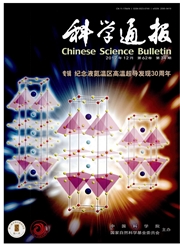

 中文摘要:
中文摘要:
北冰洋是全球海洋碳循环研究的关键地区之一,其独特的地理位置决定了它是开展海陆统筹研究碳汇的一个绝佳的场所:地形相对封闭,边缘有世界上最大的陆架区,外围有广袤的陆地冻土层和大河输入.近年来,由于全球变暖、海冰消退、北极快速变化所引起的一系列大气、冰雪、海洋、陆地和生物等多圈层相互作用过程的改变,已经对北极地区碳的源、汇效应产生了深刻影响.这种变化不仅体现在由于陆地冻土圈变化所引起的甲烷和二氧化碳释放,而且,随之而来的海水层化、混合和环流变化,陆源有机碳和营养物质入海通量的增加,改变了海洋二氧化碳"物理泵"、"生物泵"和"微型生物碳泵"作用的强度、方式,以及海洋原有的海洋碳储库构成,很可能会对全球海陆碳源汇格局产生重要影响.本文主要从北极快速变化所引起的海洋生物泵过程和陆地碳输入的变化来讨论全球变暖对沉积碳埋藏的影响.
 英文摘要:
英文摘要:
The Arctic Ocean plays a key role in the global carbon cycle and budget. This semi-closed ocean and its vast and shallow marginal shelf seas surrounded by widespread tundra makes it a unique area to study the carbon source,sink and budget,with consideration of land-ocean interaction and land and ocean as a whole. Over the last three decades because of global warming,sea ice has rapidly decreased. This has induced air-ice-sea-land multi-geosphere interaction that has greatly affected the carbon source and sink in the arctic areas. Such rapid change has not only led to the release of methane and carbon dioxide in degraded permafrost but has also altered the physical,biological and microbial carbon pumps. This process may be attributed to changes of freshwater input,water mixing and circulation,terrestrial fluvial transport,and nutrient supply to the Arctic Ocean. In this review paper,we discuss how global warming and rapid sea ice retreat affects the Arctic carbon sink and source,with a focus on the biological pump,terrestrial carbon input,and carbon burial in the Arctic Ocean.
 同期刊论文项目
同期刊论文项目
 同项目期刊论文
同项目期刊论文
 Estimation of typhoon-enhanced primary production in the South China Sea: A comparison with the West
Estimation of typhoon-enhanced primary production in the South China Sea: A comparison with the West Out-of-phase relationshipbetween tropical cyclones generated locally in the South China Sea andnon-l
Out-of-phase relationshipbetween tropical cyclones generated locally in the South China Sea andnon-l Out-of-phase relationship between tropical cyclones generated locally in the South China Sea and non
Out-of-phase relationship between tropical cyclones generated locally in the South China Sea and non 期刊信息
期刊信息
